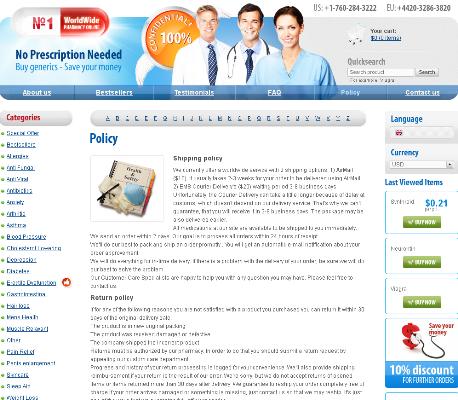What Is Prelone and How Does It Work?
Imagine a medication that acts swiftly, taming the chaos of allergy symptoms when your immune system overreacts. Prelone fits this role—its active ingredient, prednisolone, is a synthetic corticosteroid designed to reduce inflammation and suppress immune responses responsible for symptoms like swelling, itching, and rashes. By calming the body’s natural defense mechanism, Prelone helps restore comfort and control.
This medicine is commonly prescribed in a liquid form, making it easier to administer, especially for children or adults who have trouble swallowing pills. Doctors often favor Prelone for situations where fast, targeted relief is needed, and its flexible dosing can be adjusted for each patient’s needs.
| Form | Active Ingredient | Main Action |
|---|---|---|
| Oral liquid | Prednisolone | Reduces inflammation & suppresses immune system |
Common Allergies Treated with Prelone

From the tickle of seasonal hay fever to the rashes of contact dermatitis, allergies can disrupt daily life in many ways. Prelone steps in when conventional antihistamines aren’t enough, providing targeted relief from moderate to severe allergic reactions. Its anti-inflammatory power makes it a go-to for symptoms like skin swelling, itching, hives, and even serious flare-ups such as asthma exacerbations or reactions to insect stings.
Doctors often turn to prelone when allergic symptoms threaten to spiral out of control or when rapid control is essential. In cases where allergies cause extensive discomfort—think intense eczema, persistent allergic rhinitis, or swelling from food allergies—prelone offers crucial, sometimes lifesaving, intervention.
How Quickly Does Prelone Relieve Symptoms?
For many individuals struggling with allergies, waiting for relief can feel endless. When prelone is prescribed, the good news is that its anti-inflammatory action tends to work fairly quickly. Most users begin to notice improvement in symptoms such as itching, swelling, and congestion within a few hours of the first dose. Full relief often occurs within 24 to 48 hours, offering a welcome reprieve from allergy discomfort.
Prelone, being a corticosteroid, suppresses the immune response that causes allergy symptoms. This rapid onset makes it particularly valuable during seasonal flare-ups or in acute allergic reactions, such as severe skin rashes or wheezing. Although not an instant fix, prelone’s swift symptom control can be a game-changer for allergy sufferers needing prompt and noticeable improvement.
Comparing Prelone to Other Allergy Medications

When considering how Prelone fits into the landscape of allergy medications, it helps to look at both its strengths and limitations. Unlike antihistamines, which are often used for mild seasonal allergies and work by blocking histamine receptors, Prelone operates as a corticosteroid, targeting inflammation at its source. This means it can address more severe allergic reactions—such as those involving intense swelling, skin rashes, or respiratory symptoms—when first-line treatments aren't enough.
Many patients turn to Prelone when over-the-counter remedies, like cetirizine or loratadine, fall short. Oral corticosteroids like Prelone often bring faster and more comprehensive relief for acute episodes but aren’t intended for long-term, daily management due to their possible side effects.
Ultimately, Prelone's role is best reserved for cases where rapid, potent intervention is essential, while other medications suffice for routine, less severe allergy management. By understanding this distinction, patients and doctors can make safer, more effective choices.
Potential Side Effects and Precautions
When taking Prelone, many people are surprised by how quickly symptoms improve, but it’s important to remember that corticosteroids can also bring about certain side effects. Some patients may experience mood changes, insomnia, weight gain, or an increased risk of infections. While mild effects are common with short-term use, longer courses or higher doses raise the likelihood of more significant problems.
Individuals with underlying health conditions such as diabetes, high blood pressure, or glaucoma should use Prelone with extra caution and under strict medical supervision. Never stop the medication suddenly without consulting a doctor, as this can trigger withdrawal symptoms.
| Common Side Effects | Precautions |
|---|---|
| Increased appetite | Monitor diet and weight |
| Elevated blood pressure | Regular blood pressure checks |
| Mood swings | Report to healthcare provider |
Real User Experiences: Does Prelone Deliver?
Many individuals who have struggled with severe allergy symptoms report that Prelone brought welcome relief when other medications fell short. For example, parents of children with intense allergic flare-ups describe seeing noticeable improvement in itching, swelling, and breathing difficulties within just a few hours of starting Prelone. Some users appreciate how quickly it works during acute allergy episodes, citing restored comfort and quality of life.
However, experiences can vary. While some praise Prelone for its effectiveness, others mention side effects like mood changes, insomnia, or increased appetite, especially with longer use. Many users emphasize the importance of closely following a doctor’s instructions and using Prelone as a short-term solution when other allergy treatments are insufficient. Overall, firsthand accounts suggest it can be a powerful, but sometimes challenging, option for allergy relief.



